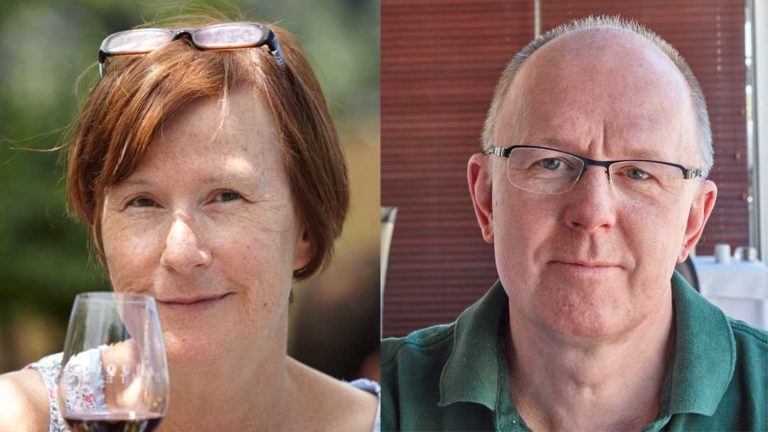
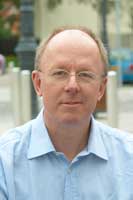
 Safe bets or daring chances?
Safe bets or daring chances?
A question that is certainly important when choosing wines for New Year!
But first, let’s start with … some publicity, now as a new year begins, to make a good start of 2018:
Wine tours
So, if you are not at all interested in wine tours (who could not be?) then you can skip the next few paragraphs.
As the year begins it is time to make plans for the coming year’s wine visits. January is not the most cheerful month of the year, so it is the perfect time to plan visits to wine regions.
And then we hope, of course, that you will travel with us at BKWine, “world’s top wine tours”, as the world’s biggest travel magazine once called us.
Our program for 2018 is not yet totally finished, but there are already some exciting destinations. And if you don’t find what you are looking for, contact us and we can do a tour just for you and your friends.
Why travel with BKWine?
Why should you choose BKWine to tour wine regions with? It is obviously difficult to know if we are good, until you travel with us…
Therefore it can be a good idea to take a look at what people who have travelled with us say. See more on that further down in the Brief.
It is hard to find someone who has more experience of organising wine tours. We did our first tour in 1986 (how things have changed!) and have since organised many hundred wine tours all over the world.
You’ll have to look hard to find a wine tour operator who knows more about wine. We have written nine wine books that have won national and international awards. We publish BKWine Magazine and write on Forbes. We have taught wine on beginner to advanced level. We judge wine in international competitions, most recently in China.
It is your travel experience that is the most important for us. We do not sell wine and have no affiliation with wine producers so we can choose the visits that are best for your rather than the ones that are “appropriate” to sell more wine. We choose the visits and plan the tours with your best experience in our focus.
We are also an international authority on wine tourism, called on to talk, for example, on wine tourism conferences and interviewed in trade magazines.
Few people travel so much in wine regions as we. Both of us, Britt and Per, visit some 200-300 wineries every year. So we know which are the best to visit.
But above all, we are passionate about sharing with you our enthusiasm and knowledge of the wine world and make you experience it on site. We hope you can tell that.
NEW YEAR
The year is soon coming to an end and our thoughts go to the sparkling wine waiting in the ice bucket. Already we can anticipate its delicious freshness. No wonder it is so popular with bubbles nowadays. And the wines have become much better. You can (or should?) even disregard the heavy bottle, the golden foil and all the grandeur. The content speaks for itself.
Must it be champagne?
We are great believers in variation. We’d rather have two different bottles than two bottles of the same. So no, it doesn’t always need to be Champagne.
It doesn’t mean you should drink anything with bubbles. As always, the price is an indication. Too cheap is never a good option. Ambitiously made sparkling wines, such as a Franciacorta or some examples from England, cost as much as a medium priced Champagne. Good cava, or the new Classic Penedes (100% organic). The best proseccos. The quite outstanding and too little known MCCs from South Africa. And so on.
So, what do you choose?
Maybe you make a statement by not choosing Champagne – to encourage smaller wine regions that have a harder time than Champagne. Or just to make a change. Or to be different.
Maybe you choose champagne because you know it is better (through personal experience and extensive tastings!). Or you think it’s best (“because everyone says so”…). Perhaps you choose champagne because it gives prestige to your dinner.
Choosing something lesser known, and it may also be choosing a grower champagne instead of a well-known house, is not obvious for everyone. Certainly not for the French either for whom the “celebrity factor” is often important.. They want their guests to recognize what they are serving. So that the guests know that it’s expensive.
You must be strong in your belief that the unknown is better / more fun / more interesting than the well-known and proven. Not everybody dares. But we recommend it. That is often our strategy when in a restaurant. We look for the wines that we recognise, and then we choose something else.
Try something different, something unfamiliar. That actually makes a pretty good New Year’s resolution. And it will make life more fun!
Happy New Year!
Britt & Per
PS: Recommend to your friends to read the Brief !
– – – – – –
What’s on at BKWine Tours
Winter 2018
- Chile and Argentina, January 27 – February 11 (full)
- South Africa, February 23 – March 5 (full)
Spring 2018
- Bordeaux, April 25-29
Autumn 2018
More to come:
- Bordeaux, October 10-14
- South Africa, November 9-19
Winter 2019
- Chile-Argentina, Jan-Feb
- New Zealand, March
For more information please contact us on email or on phone (we’re on French time), or go to our wine travel site on www.bkwinetours.com!
We also make custom designed wine tours – on-demand tours for you and a group of friends, for your company (maybe to scout new winegrowers?), for a special event… We can combine winery visits and wine touring with other activities: gastronomic workshops, visit to an oyster farm, truffles hunting, cheese making, and more. More info on the custom designed and bespoke BKWine wine tours and travel here!
Read our book(s)
We have written several wine books, nine at the last count. One of them has been translated to English; the others are (so far) only available in Swedish. This is the one that is available in English: Biodynamic, Organic and Natural Winemaking, Sustainable Viticulture and Viniculture
All our books are on wine, but on different subjects: wines of the Languedoc, wine growing and wine making, the wines of France, Tuscany, Bordeaux, Piedmont, Burgundy, Champagne. Several have won prestigeous prizes and awards. Read more on our wine books.
From the World of Wine
In Brief
In short, news and stuff from the world of wine.
“Champagne, the wine and the growers” chosen as “best wine book of the year”
Just before Christmas we received an email that was one of the best Christmas presents we could get. In the email we read that our latest book, “Champagne, the wine and the growers”, had been awarded the first prize as the year’s best wine book in the “French wines” category in the Swedish edition of the Gourmand International awards. So great to get an “official” recognition for all the work we put down on that book. This means that our champagne book will be included in the international finals of the Gourmand International competition, which will take place in China in May.
Our ambition when we wrote the book was that it would be more detailed, more updated, more factually correct (and more easy to read) than the books on Champagne currently available on the market. And I think we were quite successful with that. In addition, we wanted to bring forward the “growers” in Champagne (as opposed to the often more industrial, and more famous, “houses”). The book contains our selection of just over one hundred of some of the best growers in Champagne. Exciting champagnes; wines to discover.
Unfortunately, the book is currently only available in Swedish. You can read more about the book here: Champagne, the wine and the growers. I hope you cross your fingers for us at the competition in China in May!
South Africa’s harvest hit by the drought
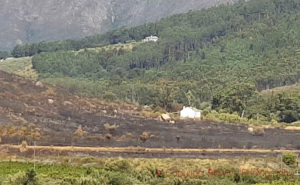 There is a severe water shortage at the moment in South Africa’s wine regions. The harvest 2018 will probably be the smallest in ten years. The South Africans begin picking their grapes in February. The irrigation dams in Western Cape, where most of the wine regions are located, are just 30 % full compared to half full last year at the same time. In 2014 the dams were almost full.
There is a severe water shortage at the moment in South Africa’s wine regions. The harvest 2018 will probably be the smallest in ten years. The South Africans begin picking their grapes in February. The irrigation dams in Western Cape, where most of the wine regions are located, are just 30 % full compared to half full last year at the same time. In 2014 the dams were almost full.
Also other things will affect the harvest. Some regions north of Franschhoek, Breedekloof, Robertson and Worcester, suffered severe frost in the spring. South Africa has 130,000 hectares of vines, of which almost 100,000 are used for making wine. From this they produce about 9 million hectolitres of wine. Read more www.iol.co.za.
Join us on our wine tour to South Africa in November!
Viti-tunnel may reduce need for spraying
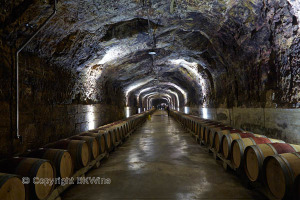 Ten Bordeaux chateaux will in 2018 and 2019 try out a new way to reduce the spraying in the vineyard. They will protect their vines against rain by installing in their vineyard a Viti-tunnel. This is a new invention. The tunnel is a transparent rain cover for the vines that automatically folds out when it is raining and retracts when the rain stops. The tunnel will be powered by solar cells and sensors will detect the moisture in the air. The idea is that the vines should not be affected, or at least less affected, by fungal diseases like mildiou and black root.
Ten Bordeaux chateaux will in 2018 and 2019 try out a new way to reduce the spraying in the vineyard. They will protect their vines against rain by installing in their vineyard a Viti-tunnel. This is a new invention. The tunnel is a transparent rain cover for the vines that automatically folds out when it is raining and retracts when the rain stops. The tunnel will be powered by solar cells and sensors will detect the moisture in the air. The idea is that the vines should not be affected, or at least less affected, by fungal diseases like mildiou and black root.
However, it feels a bit like having the vines in a greenhouse. But maybe all ways that can reduce the spraying in the vineyards are worth trying out? Look at the picture here: vitisphere.com
It is unlikely that there will be tunnels to see but there will be plenty of delicious wines to taste at the wine tour to Bordeaux in April. (And after that in the autumn.)
Wine Trends 2018: surprises, alcohol, ethics
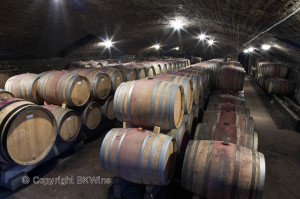 At this time of year, it is popular to try to figure out new trends for the coming year. It’s hard, but on the other hand, you can almost say anything because who can say you’re wrong? Jean-Philippe Perrouty from Wine Intelligence recently spoke to a group of wine producers in the Loire Valley. He believes that there are three ongoing trends that will be strengthened in the coming years: Consumers’ desire to be surprised, their demands for lighter wines with lower alcoholic strength and the importance of sustainability and ethics.
At this time of year, it is popular to try to figure out new trends for the coming year. It’s hard, but on the other hand, you can almost say anything because who can say you’re wrong? Jean-Philippe Perrouty from Wine Intelligence recently spoke to a group of wine producers in the Loire Valley. He believes that there are three ongoing trends that will be strengthened in the coming years: Consumers’ desire to be surprised, their demands for lighter wines with lower alcoholic strength and the importance of sustainability and ethics.
Wine consumers today, he thinks, want diversity and novelty. According to Wine Intelligences investigations, 57% of US wine consumers say they regularly want to discover new wines. Low-alcohol wines are apparently a well-established trend. In 2016, 52% of British consumers considered alcohol content an important factor when they chose wine, up from 44% in 2013. And we guess it is the lower levels they prefer even if we do not know how the question was asked. Read more on
French wine producers’ main concerns 2018
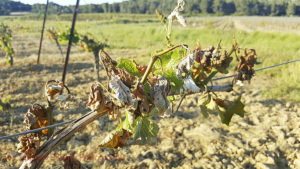 On February 8, BIVB, Interprofession des Vins de Burgundy (BIVB), will host its annual conference, Vinosphère, to discuss the future of Burgundy. The things that will be discussed are probably high on the agenda for many other French wine regions as well.
On February 8, BIVB, Interprofession des Vins de Burgundy (BIVB), will host its annual conference, Vinosphère, to discuss the future of Burgundy. The things that will be discussed are probably high on the agenda for many other French wine regions as well.
- Loi Evin. This is the law that regulates what you can say and not when promoting your wine. Loi Evin is pretty strict.
- Esca, a fungal disease that degrades the vine’s tissues and can cause it to die. There is no cure. 4.6 hectolitres per hectare are lost each year due to esca. It is a big problem today throughout France.
- How to handle frost in spring?
- Early harvest, will it be the new normal? Maybe a little early to say yet. 2017 was very early, but on the other hand it was a strange year in many ways.
- Resistant grape varieties. These are grape varieties that are crossings between European and American grape varieties. They have good resistance to mildiou and other diseases. Are now being introduced in France.
- Wine tourism. More and more wine regions are discussion how to best welcome tourists. All of a sudden, everyone wants to win the Best Wine Tourism awards.
Read more on vins-bourgogne.fr
Climate change in the vineyards, is it a problem?
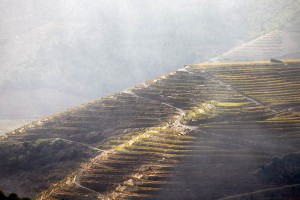 In late October, a conference called Tasting Climate Change was held in Canada. The subject was the impact of climate change on wine growing. An important question asked was: is it justifiable to plant vines where they have to be irrigated? Undoubtedly an interesting question. We asked ourselves approximately the same question when we wrote the book about biodynamic and organic wines a few years ago: is it justifiable to plant vines where they must be sprayed with environmentally hazardous products?
In late October, a conference called Tasting Climate Change was held in Canada. The subject was the impact of climate change on wine growing. An important question asked was: is it justifiable to plant vines where they have to be irrigated? Undoubtedly an interesting question. We asked ourselves approximately the same question when we wrote the book about biodynamic and organic wines a few years ago: is it justifiable to plant vines where they must be sprayed with environmentally hazardous products?
As one of the speakers quite rightly points out, without irrigation, the vineyards in the New World would not exist. Bordeaux receives 45 to 55% of its annual rainfall during the growing season while the Napa Valley gets 5 to 10%. However, Pedro Parra, a well-known Chilean terroir expert, said that irrigation in many places in the New World would not be needed if you used the right rootstock, worked properly in the vineyard and, above all, accepted a lower yield. But that would mean that the wines would be significantly more expensive. Which wine consumers would accept that? Read more about the interesting climate conference here meininger.de
What the travellers say about Chile-Argentina and other destinations
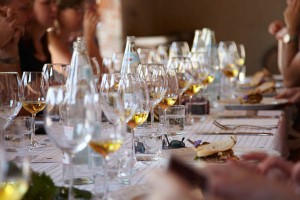 On the travel blog on BKWineTours we have recently published a selection of comments from people who have travelled with us to different wine destinations. We are always happy for feedback. Read what some of the travellers sad:
On the travel blog on BKWineTours we have recently published a selection of comments from people who have travelled with us to different wine destinations. We are always happy for feedback. Read what some of the travellers sad:
- Campania: “A lovely and interesting tour”
- Rioja “Beyond expectations; overwhelming”
- Sicily: “Wonderful and Inspiring Wine Tour”
- Chile and Argentina “A passion hard to beat. Exceeding expectations”
- Piedmont: “A superb tour, so well-composed and organised”
- Tuscany: “A fantastic tour in every way!”
- The Rhone Valley: “Fantastic experiences”
- Veneto-Valpolicella: “A wine tour we will never forget”
You can find even more customer comments and testimonials on our wine tours here.
Features
Features that we have published during the past month, with lots of reading for you.
Best young and old “anniversary” vintages to celebrate with in 2018
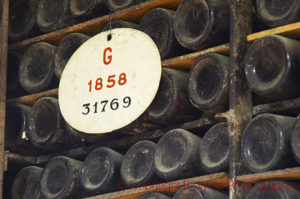 “It was a year that might turn even the most devout teetotaller to drink – unless their name is Trump. In 2017, we witnessed the inauguration of a Twitter-obsessed reality TV star as US President (whose grandfather came from the Pfalz wine region in Germany); the ongoing tragicomedy of North Korea; shocking events in Manchester and Las Vegas; a never-ending war in Syria; and the devastating consequences of Hurricane Harvey and the Mexican earthquake. Compared to these events, fermented grape juice becomes even more insignificant. Nonetheless, let’s try and look to 2018 with optimism and savour the chance to enjoy some great wines with friends and family. Vintages that end in ‘8’ can be auspicious.”
“It was a year that might turn even the most devout teetotaller to drink – unless their name is Trump. In 2017, we witnessed the inauguration of a Twitter-obsessed reality TV star as US President (whose grandfather came from the Pfalz wine region in Germany); the ongoing tragicomedy of North Korea; shocking events in Manchester and Las Vegas; a never-ending war in Syria; and the devastating consequences of Hurricane Harvey and the Mexican earthquake. Compared to these events, fermented grape juice becomes even more insignificant. Nonetheless, let’s try and look to 2018 with optimism and savour the chance to enjoy some great wines with friends and family. Vintages that end in ‘8’ can be auspicious.”
BKWine Magazine’s guest writer Stuart George takes a look at what celebratory vintages – those ending in “8” – to pull the cork on in 2018: Best young and old “anniversary” vintages to celebrate with in 2018.
Ningxia taking the lead in Chinese wine? | Britt on Forbes
 ”Ningxia is the most talked about Chinese wine region at the moment. Clever marketing people and ambitious winemakers are working hard to make their region well known. Twenty years ago, few had heard of Ningxia wines. Many of the estates here have been created in the last five to ten years. They are still learning. The producers themselves say they lack experience and technology. Many seek help and advice from French oenologists.”
”Ningxia is the most talked about Chinese wine region at the moment. Clever marketing people and ambitious winemakers are working hard to make their region well known. Twenty years ago, few had heard of Ningxia wines. Many of the estates here have been created in the last five to ten years. They are still learning. The producers themselves say they lack experience and technology. Many seek help and advice from French oenologists.”
Britt was positively surprised in China. Read more on it on BKWine Magazine, originally published on Forbes: Ningxia taking the lead in Chinese wine? | Britt on Forbes.
The Heel of Italy, Apulia, makes some excellent wines
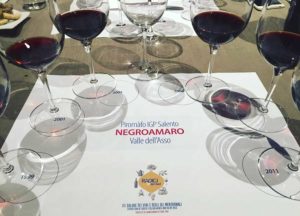 “Elio Minoia is a low-profile winemaker and a big smile at the winery Valle dell’Asso. The winery is located in Galatina, just outside Lecce in Salento, at the bottom of the Italian heel, in Apulia or Puglia as it is also called. Elio has worked side by side with the founder of the winery, Luigi Vallone, until the later sadly passed away. Today, Elio continues his work, with his daughter Mariachiara Minoia and the new owner Pierantonio Fiorentino. Sometimes it’s positive that things remain as they were. Like in this case.”
“Elio Minoia is a low-profile winemaker and a big smile at the winery Valle dell’Asso. The winery is located in Galatina, just outside Lecce in Salento, at the bottom of the Italian heel, in Apulia or Puglia as it is also called. Elio has worked side by side with the founder of the winery, Luigi Vallone, until the later sadly passed away. Today, Elio continues his work, with his daughter Mariachiara Minoia and the new owner Pierantonio Fiorentino. Sometimes it’s positive that things remain as they were. Like in this case.”
Read more on the Piromafo wine from Valle dell’Asso in Åsa Johansson’s article on BKWine Magazine: Piromàfo, an elegant negroamaro from Apulia.
French food for Christmas and New Year | Per on Forbes
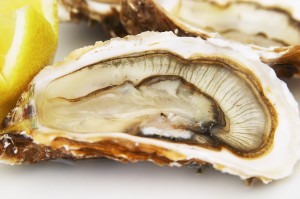 In France, curiously, they don’t really have much special food for Christmas and New Year. Instead they just eat more and better of what one would have for any festive meal at another time of the year. Lots of shellfish, succulent pieces of meat, game of many different types, well-matured cheeses, etcetera. There are two things that only get a place on Christmas tables though. That is the capon, le chapon, the castrated rooster, and the bûche de noël, the very creamy-buttery Christmas log cake. And also, oysters, enormous amounts of oysters.
In France, curiously, they don’t really have much special food for Christmas and New Year. Instead they just eat more and better of what one would have for any festive meal at another time of the year. Lots of shellfish, succulent pieces of meat, game of many different types, well-matured cheeses, etcetera. There are two things that only get a place on Christmas tables though. That is the capon, le chapon, the castrated rooster, and the bûche de noël, the very creamy-buttery Christmas log cake. And also, oysters, enormous amounts of oysters.
Read more (and see the pictures) in Per’s article on BKWine Magazine, originally published on Forbes: French food for Christmas and New Year | Per on Forbes.
The biggest wine producer in the Loire Valley focuses on quality
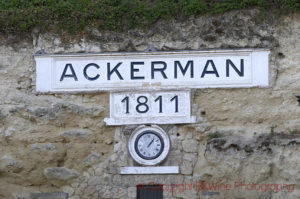 “Maison Ackerman is a famous producer of sparkling wine in the Loire Valley. The company is part of a bigger group that owns 1120 acres (453 hectares) throughout the Loire Valley, from Muscadet close to the Atlantic Ocean in the west, to Sancerre in the east. In addition, they buy grapes from 186 growers. In total the group disposes of 3660 acres (1480 hectares). This makes the Ackerman Group the largest wine producer in the Loire Valley. 61% of the wines are still wines. The company is the second largest rosé producer and the biggest exporter in the Loire. Now the company wants to be not only the biggest but also the best.”
“Maison Ackerman is a famous producer of sparkling wine in the Loire Valley. The company is part of a bigger group that owns 1120 acres (453 hectares) throughout the Loire Valley, from Muscadet close to the Atlantic Ocean in the west, to Sancerre in the east. In addition, they buy grapes from 186 growers. In total the group disposes of 3660 acres (1480 hectares). This makes the Ackerman Group the largest wine producer in the Loire Valley. 61% of the wines are still wines. The company is the second largest rosé producer and the biggest exporter in the Loire. Now the company wants to be not only the biggest but also the best.”
Read more in Britt’s article on BKWine Magazine, originally published on Forbes: New strategy for Ackerman, one of the biggest producers in the Loire | Britt on Forbes.
Olive oil and wine from Dievole, a producer in Tuscany
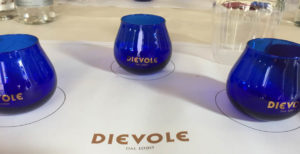 “ ‘Wine producers usually see the production of olive oil as a problem and not as an opportunity. Here at Dievole, it is the first time I see a long-term ambitious project’, says Stefano Capurso, General Manager of Dievole. Dievole is a farm located in the southern part of Chianti Classico in a landscape that is breathlessly beautiful. The farm dates back to the year thousand but was purchased in 2013 by Argentinean petrol tycoon Alejandro Pedro Bulgheroni, which also has estates in Montalcino, Argentina and Uruguay.”
“ ‘Wine producers usually see the production of olive oil as a problem and not as an opportunity. Here at Dievole, it is the first time I see a long-term ambitious project’, says Stefano Capurso, General Manager of Dievole. Dievole is a farm located in the southern part of Chianti Classico in a landscape that is breathlessly beautiful. The farm dates back to the year thousand but was purchased in 2013 by Argentinean petrol tycoon Alejandro Pedro Bulgheroni, which also has estates in Montalcino, Argentina and Uruguay.”
Read more on Dievole in Åsa Johansson’s article on BKWine Magazine: The Tuscan wine producer Dievole is investing in quality olive oil.
If you want to explore more of the Tuscan food wine you can come on a wine tour in Tuscany with BKWine.
Wine tours
Some information about current and future wine tours with BKWine.
Bordeaux: lots of wine and water | wine tour
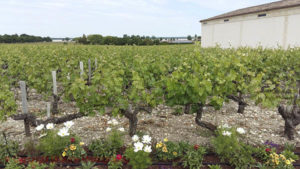 The Atlantic Ocean is 50 kilometres away from the wine district of Bordeaux. But the Ocean still plays a major role for the climate and the weather. There is a lot of water around Bordeaux. The elegant city of Bordeaux is located on the river Garonne. Garonne merges with the Dordogne, another large river, north of the city. Together they form the bay Gironde which reaches the Atlantic Ocean after 70 kilometres. In Gironde there was a lot of sturgeon a hundred years ago. They are back now, but farmed, not wild anymore. The caviar from Bordeaux is now famous.
The Atlantic Ocean is 50 kilometres away from the wine district of Bordeaux. But the Ocean still plays a major role for the climate and the weather. There is a lot of water around Bordeaux. The elegant city of Bordeaux is located on the river Garonne. Garonne merges with the Dordogne, another large river, north of the city. Together they form the bay Gironde which reaches the Atlantic Ocean after 70 kilometres. In Gironde there was a lot of sturgeon a hundred years ago. They are back now, but farmed, not wild anymore. The caviar from Bordeaux is now famous.
Ducks and foie gras from the Bordeaux district are also famous and something that you must try when you are there. Grilled duck breasts (magret de canard) go very well with a Saint Emilion, Saint Julien or a Pessac-Léognan. Or try an entrecote bordelaise or oysters with a crispy Entre-deux-Mers. The food is delicious in Bordeaux and our chateaux lunches are luxurious.
Our Bordeaux wine tour takes place in early May. (And then again in the autumn.)
South Africa in November! Fantastic food, wines, whale watching and much more | wine tour
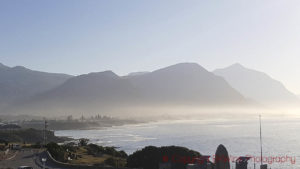 An exciting and important part of our tours in South Africa is the food. It can be a braai with all kinds of meat and sausages on the grill, or a gastronomic highlight in a star restaurant. South Africa has several famous chefs and one of them is Bertus Basson. He has a well-known restaurant in Stellenbosch and is also often on television, a TV-star chef. And sometimes he cooks for us! Not at his restaurant. He brings his kitchen brigade and everything else he needs to one of the wineries we visit and prepares a number of extremely tasty dishes for us. We enjoy it on the terrace, the food and the view and the wines. Another lunch shows us influences from Indonesia, the so-called Cape Malay cuisine. Curry is one of the important ingredients. It is strong and tasty. A pinotage goes well with this food.
An exciting and important part of our tours in South Africa is the food. It can be a braai with all kinds of meat and sausages on the grill, or a gastronomic highlight in a star restaurant. South Africa has several famous chefs and one of them is Bertus Basson. He has a well-known restaurant in Stellenbosch and is also often on television, a TV-star chef. And sometimes he cooks for us! Not at his restaurant. He brings his kitchen brigade and everything else he needs to one of the wineries we visit and prepares a number of extremely tasty dishes for us. We enjoy it on the terrace, the food and the view and the wines. Another lunch shows us influences from Indonesia, the so-called Cape Malay cuisine. Curry is one of the important ingredients. It is strong and tasty. A pinotage goes well with this food.
Come and enjoy all this on our wine tour to South Africa in the fall of 2018. We will also have time for whale watching in Hermanus on the south coast! The tour takes place in November 2018.
Don’t be an egoist! Share with your friends and other wine enthusiasts! Forward the Brief to your friends! Suggest that they sign up for a free subscription !
© Copyright BKWine


